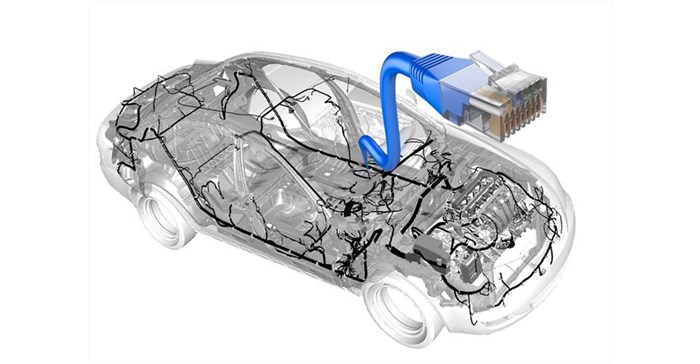
Top stories






AutomotiveHilux Custom Builds offers purpose-built solutions for your business
Toyota South Africa Motors 16 Feb 2026
More news


Marketing & Media
Ads are coming to AI. Does that really have to be such a bad thing?














Hyundai Motor Company and Cisco shared their timeline for commercial deployment of 'hyper-connected' production vehicles, slated for 2019. Technology advancements from the collaboration will reportedly enable the two companies to disrupt auto industry at a faster pace.
The focus for Hyundai and Cisco is moving away from restrictive CAN (Controller Area Network) systems, to Ethernet communications, which boast processing speeds of up to 1Gbps. The ethernet-based software also supports integrated data control, which allows for flexible expansion of connections to handle large data sets coming from various components in the vehicle simultaneously.
The companies have created a new platform that provides highly secure access to all the data in the vehicle. The platform utilises the first generation of 1Gps architectures and Automotive Ethernet with QoS, which allows for maximised bandwidth, more capabilities. It's highly configurable and secure - and offers the flexibility to design and build new services. It will also accelerate innovation, provide 'over the air updates', and shorten the lifecycle in bringing new capabilities to market.
The software defined vehicle (SDV) platform is an in-vehicle network that sets the table for adaptive technologies. It also offers integrated, enhanced security - as well as full end-to-end networking. The SDV will allow new, high-speed services through an integration layer between software and legacy hardware.
By enabling IP and ethernet services, legacy buses and devices will work together with the new ethernet attached devices and services. Through its work with Cisco, Hyundai will ensure that its connected car infrastructure can adapt to new innovations in vehicle to everything (V2X) communication, that will allow for a much safer autonomous driving experience and enable 'smart traffic' services. This will allow the connected car platform to evolve and link cars to everything from homes and offices to city infrastructure and other vehicles via intelligent networks, the internet of things, and internet protocol technologies.
Hyundai will also work on other connected car technologies and related services such as smartphone and smart home connected services, intelligent remote support, fully autonomous driving, smart traffic functionality and mobility hubs.
Under the terms of the five-year research and development partnership, researchers from the Nissan Research Centre in Silicon Valley and Nasa Ames have been working together to advance autonomous vehicle systems.
In January 2017, at CES in Las Vegas, Nissan introduced Nissan Seamless Autonomous Mobility (SAM), a new platform for managing fleets of autonomous vehicles, developed from NASA technology. This new phase in the collaboration will build on that success to further develop the technology and test the use of SAM for managing autonomous transportation services, ahead of public implementations.
“We built SAM from technology Nasa developed for managing interplanetary rovers as they move around unpredictable landscapes,” said Maarten Sierhuis, director of the Nissan Research Centre in Silicon Valley.
“Our goal is to deploy SAM to help third-party organisations safely integrate a fleet of autonomous vehicles in unpredictable urban environments, for example, ride-hailing services, public transportation or logistics and delivery services. The final stage of our existing research agreement with Nasa will bring us closer to that goal and test SAM in a working demonstration on public streets.”